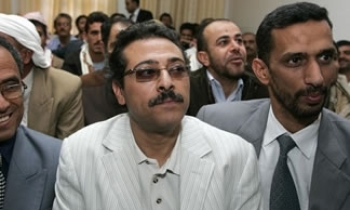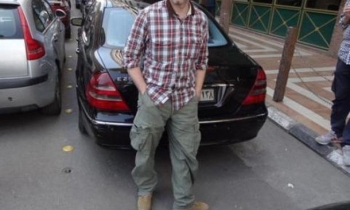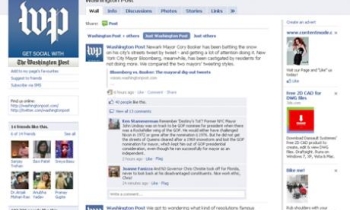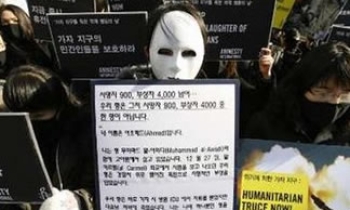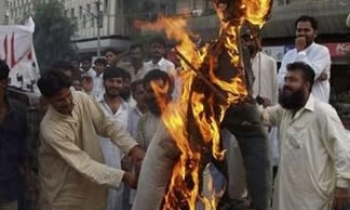A court ruled on Thursday last that a Danish newspaper did not libel Muslims by printing cartoons of the prophet Mohammed that unleashed a storm of protests in the Islamic world, Reuters reported. Seven Danish Muslim organisations brought the case, saying the paper had libeled them with the images, which included one depicting the prophet with a bomb on his turban, by implying Muslims were terrorists.

Jyllands-Posten, which published the 12 illustrations in September last year, hailed the ruling, saying any other outcome would have been a catastrophe for a free press.
The cartoons were reprinted elsewhere and at least 50 people were killed as angry Muslims rioted in the Middle East and Asia. Three Danish embassies were attacked and many Muslims boycotted Danish goods.
"It cannot be ruled out that the drawings have offended some Muslims' honour, but there is no basis to assume that the drawings are, or were conceived as, insulting or that the purpose of the drawings was to present opinions that can belittle Muslims," the court said in its ruling.
Islamic law forbids any depiction of the prophet, even positive ones, to prevent idolatry.
"Of course it cannot be excluded that the drawings offended some Muslims," the Aarhus court said in its ruling. "But there is no sufficient reason to assume that the cartoons are or were intended to be insulting ... or put forward ideas that could hurt the standing of Muslims in society." The court ordered the seven organisations to pay the paper's court expenses. The plaintiffs have appealed to a higher court.
The plaintiffs, who claimed to have the backing of 20 more Islamic organizations in the Scandinavian country, had sought US$16,860 in damages from Jyllands-Posten Editor in Chief Carsten Juste and Culture Editor Flemming Rose, who supervised the cartoon project, an Associated Press (AP) report said. Had they been convicted, they could have faced prison for up to four months.

The lawsuit said the cartoons depict Muhammad "as belligerent, oppressing women, criminal, crazy and unintelligent, and a connection is made between the prophet and war and terror." It said the drawings were published "solely to provoke and mock not only the Prophet Muhammad but also the Muslim population."
"Anything but a clear acquittal would have been a catastrophe for freedom of the press and the media's ability to fulfill its role in a democratic society," Jyllands-Posten editor Carsten Juste said on the paper's website. "You can think what you want about the cartoons, but the newspaper's unassailable right to print them has been set by both the country's prosecutors and the court system."
The ruling said some of the cartoons did not depict the Prophet or have a religious subject, while others fell outside the scope of defamation laws. But the court did find that three of the cartoons fell within what the law could deem as insulting.
In March, Danish prosecutors declined to press charges against the newspaper under Danish blasphemy and anti-racism laws.
According to the Worldwide Press Freedom Index (WPFI) rankings released last week by Reporters sans Frontiers (RSF), Denmark (now 19th) dropped from joint first place because of serious threats against the authors of the Mohammed cartoons published there in autumn 2005. For the first time in recent years in a country that is very observant of civil liberties, journalists had to have police protection due to threats against them because of their work, the RSF report said.

Another crisis over cartoons almost erupted earlier this month after Danish state TV aired amateur video footage showing members of the anti-immigrant Danish People's Party (DPP) youth wing taking part in a competition to draw images mocking the prophet at a summer camp in August.
Danish Prime Minister Anders Fogh Rasmussen, who had steadfastly stood for values of freedom of expression in the country during the earlier conflagration, condemned the behaviour of the DPP activists. The DPP is not a member of the ruling coalition but supports the government in parliament.

